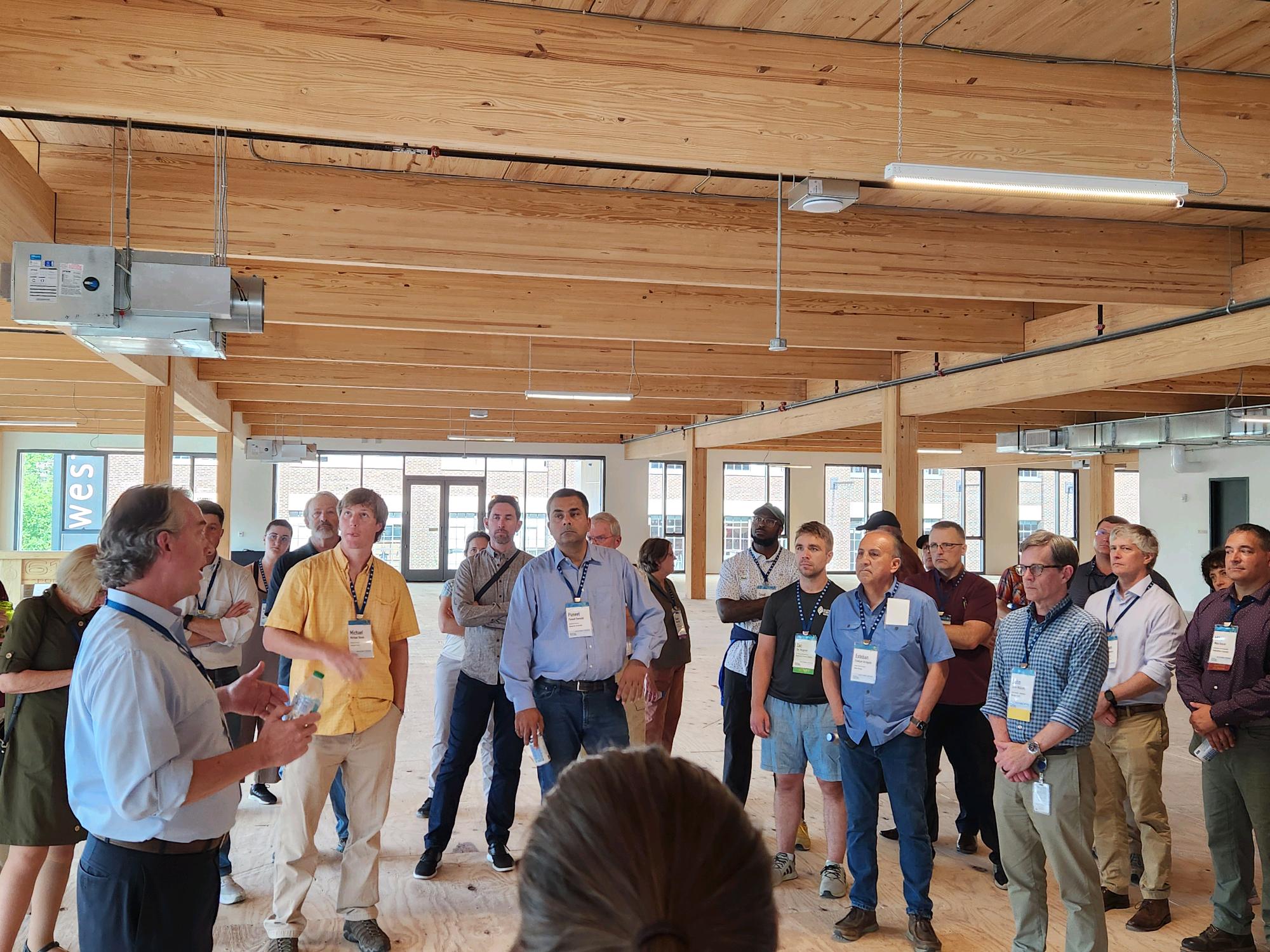Washington, D.C.—619 Ponce, an innovative mass timber project in the heart of Atlanta led by Jamestown, was recognized as a 2024 Wood Design and Building Award recipient for excellence in wood architecture and construction by the Canadian Wood Council. 619 Ponce exemplifies the growing trend of “forest-to-frame” construction and parallels the “farm-to-table” movement. Similar to how a farm-to-table approach to sourcing redefined food supply chains, architects and building professionals are transforming construction with a forest-to-frame approach using materials from regional forests certified to the Sustainable Forestry Initiative® (SFI) 2022 Forest Management Standard.
 619 Ponce stands as a landmark for sustainable design and construction, featuring innovative cross-laminated timber (CLT) panels and glue-laminated (glulam) beams sourced from SFI®-certified forests. The project marks a milestone for regional supply chains, with the building’s wood grown, harvested, and manufactured within 250 miles of the project site—drastically reducing transportation emissions and supporting local businesses and economies. More than 550 local jobs were supported by the Ponce project.
619 Ponce stands as a landmark for sustainable design and construction, featuring innovative cross-laminated timber (CLT) panels and glue-laminated (glulam) beams sourced from SFI®-certified forests. The project marks a milestone for regional supply chains, with the building’s wood grown, harvested, and manufactured within 250 miles of the project site—drastically reducing transportation emissions and supporting local businesses and economies. More than 550 local jobs were supported by the Ponce project.
“We hope that the regional supply chain we developed with our partners for this project can catalyze a larger movement toward the adoption of locally sourced, SFI-certified mass timber in the Southeast,” said Troy Harris, Managing Director of Timberland and Innovative Wood Products at Jamestown. “This project not only showcases the potential of sustainable building practices but also underscores the importance of innovation in our forestry sector.”
“619 Ponce showcases the beauty of mass timber while setting a new benchmark for sustainable development in the Southeast,” added Catherine Pfeiffenberger, Managing Director, Head of Development and Construction at Jamestown. “This project was able to build a regional supply chain and support the local economy and the state’s forestry sector while also minimizing the project’s carbon footprint.”
Certification to the SFI Chain of Custody Standard was a consideration throughout the entire sourcing process. Jamestown sourced southern yellow pine from their own SFI-certified forest, which was shipped to Georgia-Pacific’s (GP) SFI-certified mill in Albany, Georgia, to become lumber, and then transferred to SmartLam’s SFI-certified mass timber facility in Dothan, Alabama, where it became CLT panels and glue-lam columns and beams.
“Mass timber is an increasingly attractive building material because of its unique environmental stewardship qualities, and we recognized the opportunity to support its growth by joining with the Sustainable Forestry Initiative (SFI) and other leaders in a landmark project using southern yellow pine lumber, which is something we have a lot of experience with. Our engagement with SFI is an important tool in ensuring that we’re good stewards of the southeastern forests,” said John Mulcahy, Vice President of Stewardship at Georgia Pacific.
619 Ponce is part of a broader movement that is seeing universities, corporations, and municipalities adopt more sustainable, mass timber building practices. Recent examples, such as Portland International Airport’s use of CLT and glue-laminated beams with wood sourced from Yakama Nation’s SFI-certified forestland, further illustrate how certified mass timber is reshaping the construction industry across the United States.
ABOUT SFI
The Sustainable Forestry Initiative® (SFI) advances sustainability through forest-focused collaborations. We are an independent, nonprofit organization that leverages four interconnected pillars of work: standards, conservation, community, and education. SFI works with the forest sector, conservation groups, academics, researchers, brand owners, resource professionals, landowners, educators, local communities, Indigenous Peoples, and governments. Collaborating with our network, we leverage SFI-certified forests and products as powerful tools to help solve sustainability challenges such as climate action, conservation of biodiversity, education of future generations, and sustainable economic development.
MEDIA CONTACT
Christine Leduc
VP, Communications and Government Relations
Sustainable Forestry Initiative
613-706-1114
media@forests.org
